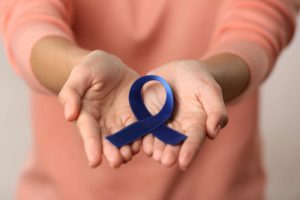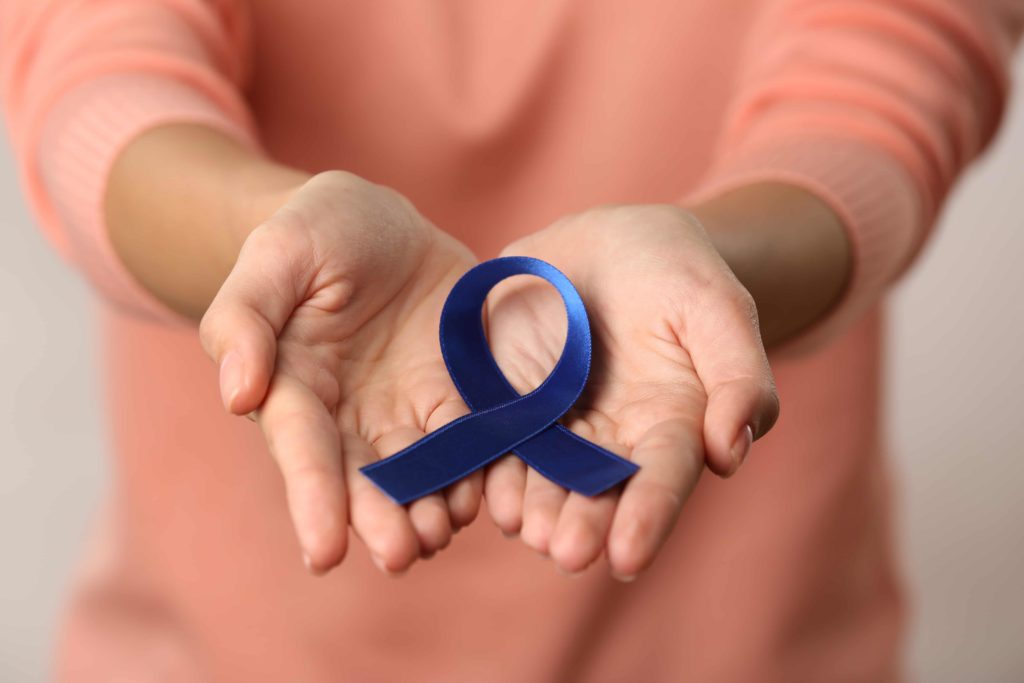 March is Colorectal Cancer Awareness Month, so take a minute to learn how you can prevent this disease.
March is Colorectal Cancer Awareness Month, so take a minute to learn how you can prevent this disease.
VARIOUS TYPES OF cancer affect the digestive system, but one of the most commonly diagnosed is colorectal cancer—in 2016 more than 100,000 cases were diagnosed in the United States. While the average age of someone who is diagnosed with colorectal cancer is 72, the disease can affect men and women of any age.
Although certain risk factors for colorectal cancer—like age and family history—cannot be modified, there are steps you can take to prevent the disease. Physical activity is key because obesity is a prominent risk factor. Aim for moderate intensity exercise several times a week to help prevent or reverse obesity—if you break a sweat, you’re on the right track.
Other ways to prevent colorectal cancer include quitting smoking and curbing excess alcohol use, along with aspirin and combination hormone replacement therapy if deemed necessary by your doctor.
WHY GET A COLONOSCOPY?
Colorectal cancers respond better to treatment when they are caught in the earliest stages, when many patients only need surgical procedures to remove polyps or small sections of the colon.
One of the most effective ways to prevent colorectal cancer is getting a colonoscopy. During a colonoscopy, doctors use a flexible scope to look inside your rectum and colon. This test can detect signs of colon cancer and remove growths called polyps at the same time. While polyps are often noncancerous, some can develop into cancer. By finding and removing them during a colonoscopy, physicians are able to prevent the occurrence of cancer in some cases.
Some people avoid having a colonoscopy because they’re afraid of the required preparation. However, most doctors agree that a little bit of discomfort is worth it for the benefits the procedure brings.
Talk to your doctor about your personal colorectal cancer risk level to determine when you should begin having colonoscopies. Most people should have their first colonoscopy at age 50. Other factors such as your personal medical history, family medical history, and race all play a part in your risk.
WHAT HAPPENS IF I’M DIAGNOSED WITH COLORECTAL CANCER?
Symptoms of colorectal cancer include weakness or unexplained fatigue, blood in the stool or rectum, abdominal pain or cramping, and feeling as though you need to have a bowel movement even soon after having one.
If you experience these symptoms, talk to your doctor right way for a diagnosis and to begin treatment. If you have colorectal cancer, various treatments may be used, depending on the stage at which the cancer is detected, including surgery, radiation therapy, chemotherapy, and other targeted treatment.

